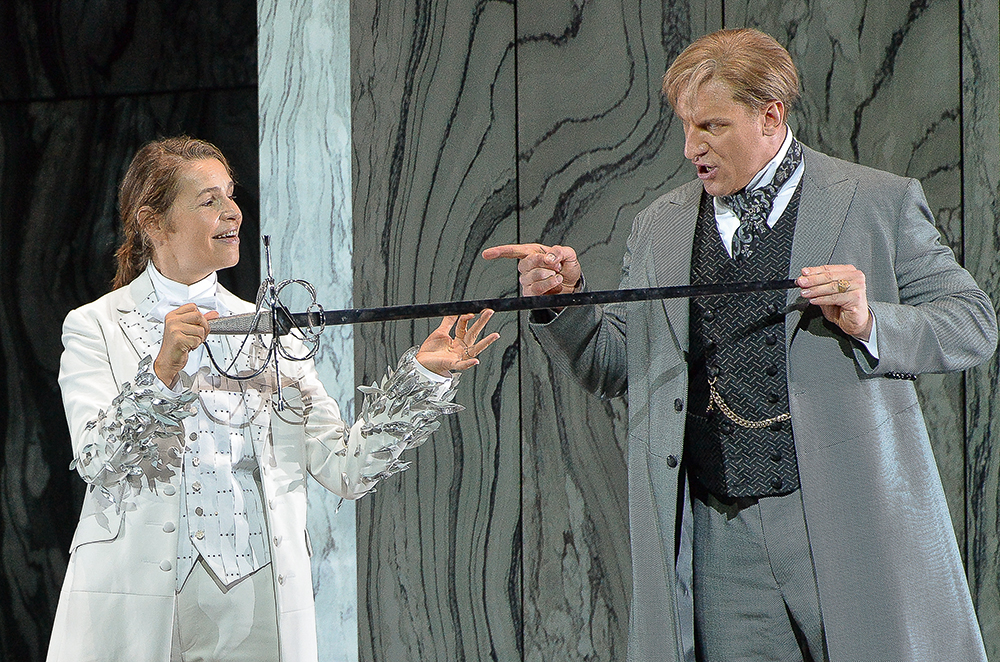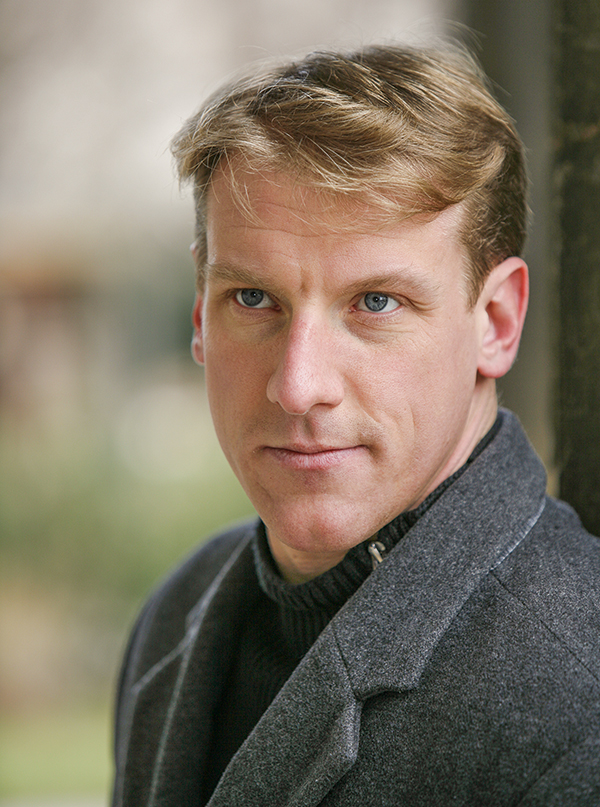Günther Groissböck numbers among the busiest international basses of his generation. The Lower Austria native spoke with mdw Magazine about his student years at the mdw in Vienna, the fundamental secret to having a successful career, and the Vienna State Opera’s designated “leading duo” of Bogdan Roščić and Philippe Jordan.

and Günther Groissböck as Baron Ochs auf Lerchenau ©Barbara Gindl / APA / picturedesk.com
Thanks to a certain affinity for classical music on the part of his parents, Günther Groissböck was surrounded by music right from early childhood. He remembers their record collection, which was well stocked with all the basics of an educated middle-class musical household: Beethoven symphonies, The Magic Flute, Don Giovanni. At age eight, he began playing piano. Back then, in Waidhofen an der Ybbs, it was considered part of a good upbringing for a child to learn a musical instrument. But as far as singing is concerned, the 41-year-old was really quite late to the game. Only after graduating from school did singing really become a topic. Friends encouraged him to do something with his voice: “Before, I’d been far too inhibited, and I wasn’t so sure whether the sounds that came out were worth anything at all,” explains Groissböck. Ultimately, his brother-in-law got him an appointment at the mdw to sing for then-professor Franz Lukasovsky, an appointment he went to without ever having had a single voice lesson. Lukasovsky ended up urging Groissböck to take the admission exam, because he thought he sounded very promising and might even have a future. And Lukasovsky turned out to be right!

Groissböck remembers how, following a year in the preparatory programme, he had a very tough time deciding which of the teachers he most wanted to study with. Further vivid memories include not only the wonderful Palais Cumberland on Penzinger Straße, part of which is occupied by the Department of Voice and Music Theatre, but above all the feeling of being “away from the other—‘normal’—world.” He wasn’t necessarily all that enamoured of the competitive atmosphere during his studies, however, and he was a bit lazy about his minor subjects. Groissböck did make sensible use of his free time, though: he was a regular in the standing room of the Vienna State Opera. “In hindsight, that turned out to be the best ‘minor subject’ of all, and I’m still benefitting from those experiences today.”
Following stints at the Vienna State Opera and the Zurich Opera House, the bass now works as a freelancer, making appearances on all of the world’s great operatic stages. His calendar is full all the way to the 2021/22 season. Some of Groissböck’s contracts even run to 2024, for example with the Bayreuth Festival, where he will be heard as Veit Pogner in the festival’s opening opera Die Meistersinger von Nürnberg, as Gurnemanz in Parsifal in 2018/2019, and from 2020 as Wotan in the Der Ring des Nibelungen. In addition to his performances in Bayreuth, Groissböck will be singing nearly all of his personal dream roles over the next few years, including King Philip in Don Carlos and Fiesco in Simon Boccanegra. With so many engagements, isn’t there a danger of things becoming routine and automatic? “Of course that can happen—especially in repertory situations, where you might sing the same role many times back to back,” says Groissböck. And such tendencies, he says, need to be countered immediately. His fundamental secret here is the same as in nutrition: “The meal plan has to have lots of colour and variety. And you always have to stay hungry and curious.” Groissböck advises young singers to think about a Plan B alongside music. The market, he says, is becoming ever harder and more limited. And no matter how good one is, it can never hurt to have an alternative. “The voice is an extremely fragile instrument.”
In Vienna, Groissböck’s next appearance will be in June 2018, as Heinrich der Vogler [Henry the Fowler] in Lohengrin at the Vienna State Opera. And he’s quite optimistic about the institution’s new directors: “Bogdan Roščić is extremely ambitious, and I’m very excited about his plans. If he manages to realise even just half of what he‘s setting out to do, it’s going to be really great,” says the singer, who calls Roščić’s appointment a courageous and good decision—especially in combination with designated (music) Director Philippe Jordan. He characterises Jordan as “extremely capable” and as “probably that individual who gave me the most encouragement and support over the years.” Together, they’re now trying to find dates in Vienna beginning in 2020—so the Viennese public can expect good things to come!
